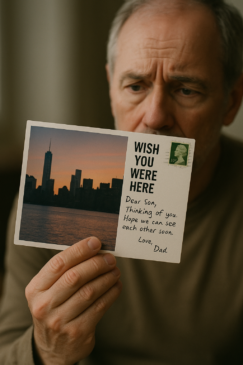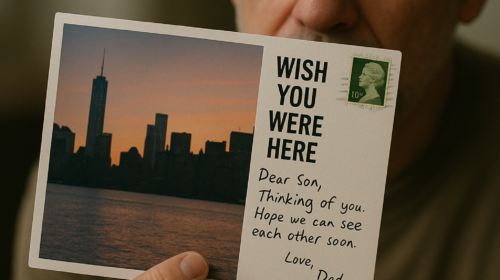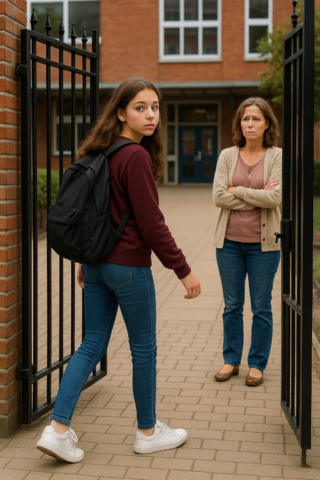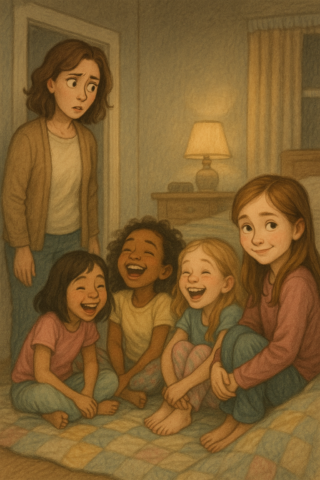Some surprises come in the form of a bright postcard, tucked among bills and catalogs, with your daughter’s handwriting looping across the back. I’d always encouraged Molly to travel, to send me a postcard from every stop—just as my mother did for me. But when I flipped this one over and saw the skyline of Austin, Texas, my breath caught in my throat. Austin—the city where my ex-husband, and Molly’s estranged father, lived.
“Hi Mom!” the message bubbled, cheerful and brief. “Austin is awesome! The food is amazing and I met some really cool people. Wish you were here. Love, Molly.”
The words were innocent, but the postmark and the image were not. My mind raced with questions I couldn’t put down. Was she visiting her father? Had she gone searching for him? Or was it just a coincidence—a detour with friends, no reunion involved?

When the Past Comes Calling—By Mail
I stared at the card, the skyline as familiar as my own heartbeat. For years after the divorce, I had gently dodged conversations about her dad. He’d drifted away, and Molly stopped asking about him, burying her confusion in school, sports, and—eventually—her own independence. We built a world together that didn’t need the missing piece. Or so I thought.
Now, holding that postcard, I wondered if the gap had finally grown too wide to ignore. Was this her way of telling me she wanted to reconnect, or was she simply sending a snapshot from her adventure, not realizing the weight it would carry?
The Conversation I Couldn’t Avoid
I waited a few days before calling her, not wanting to project my fears onto her freedom. When she answered, her voice was light, happy. I asked her about her trip—the music, the food, the friends. Finally, I gently asked, “Did you see anyone you know while you were in Austin?”
A pause. Then: “Actually, I reached out to Dad. I wanted to see him, just to talk. I hope that’s okay.”
My heart ached, but I listened. Molly told me how they’d met for coffee, how nervous she’d been, how much she wanted answers and closure. “He was different than I remembered, Mom. But I’m glad I saw him. I needed to understand for myself.”
Moving Forward—With Openness
We talked for a long time that night. I told Molly I was proud of her for searching for her own truth, even if it meant reopening old wounds for both of us. I admitted it wasn’t easy for me, but I wanted her to have the freedom to decide what role—if any—her father would play in her life now.
In the end, the postcard became more than a souvenir. It was a bridge—a way for my daughter to connect her past with her present, and for me to remember that her story is hers to write, even if it touches on the chapters I’d hoped were closed.
What I Learned
Letting go is a lifelong process. I learned that our children will seek their own answers in their own time, and the best we can do is support them with love, honesty, and open doors. Even when a postcard brings up old heartbreak, it can also mark the beginning of new understanding.
Final Thought
If a postcard—or any unexpected sign—reminds you of a past you’d rather forget, breathe deeply and reach for connection over control. Trust your child’s journey, and remember: healing can begin with something as simple as a stamp and a few honest words.


